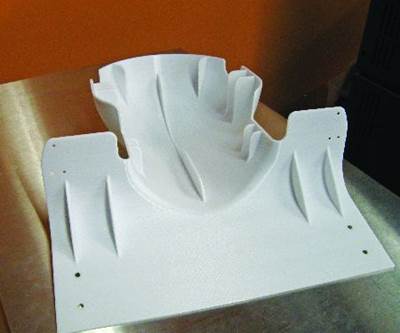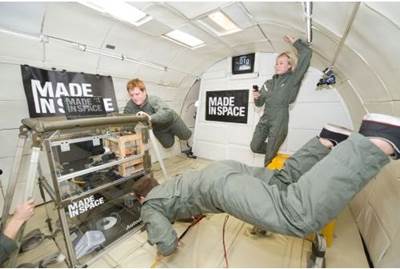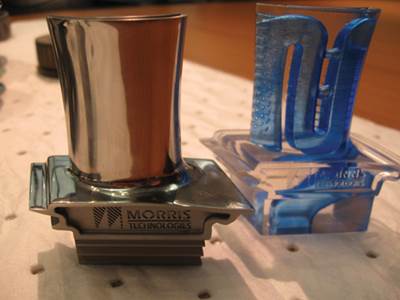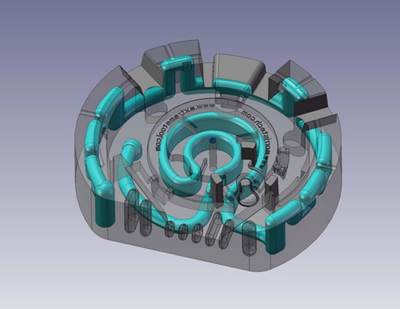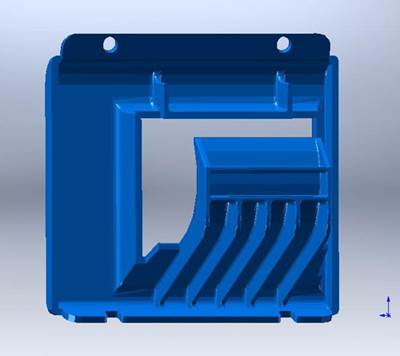Articles
An Injection Molder in MMS?
By embracing additive manufacturing, injection molder Thogus is able to bypass mold suppliers.
WatchRedefining Plastics Manufacturing
When this company was solely an injection molder, job quantities had to be large. Now, with additive manufacturing, any quantity is right. The company's role and its range of customers have both expanded.
Read MoreManufacturing in Space
An additive manufacturing process was recently tested in zero-gravity conditions in an effort to develop solutions for manufacturing in outer space. One thing about additive processes—they don’t create loose chips!
Read MoreAmerimold Workshop: Direct Metal Laser Sintering
Laser sintering is an additive process that deposited metals, such as Titanium, to create complex machinable workpiece blanks.
Read MoreIs Direct-Metal Manufacturing Ready for Production?
Not yet, says one manufacturer—but almost. This company is getting its customers ready for the day when additive manufacturing will be much more mainstream.
Read MoreAddressing the Design Issues of Rapid Manufacturing
This white paper from a manufacturer that added an in-house rapid manufacturing center describes how additive technologies both complement and differ from manufacturing processes relying on CNC machining.
Read MoreRapid Tooling: Faster, Better, and Less Expensive
Don’t think of rapid tooling purely for prototyping or short runs. Additive tech is making it possible to produce steel tools that have decided benefits for injection molding and die casting.
Read MoreDirect Manufacturing Gets a High-Flying Boost
A consortium of companies is working with a German university to advance the state of additive manufacturing processes.
Read MoreIs Direct-Digital Manufacturing Right For You?
Additive fabrication technology has moved beyond prototyping. These four indicators can help manufacturers decide whether to consider direct-digital manufacturing (DDM) for their operations.
Read MoreThe Rapid Manufacturing You Didn’t Know About
Despite its anticipated success, rapid manufacturing’s (RM) use is well below most predictions. While RM applications may be short of expectations, additive fabrication technologies and indirect rapid manufacturing have quietly been adopted and found solid acceptance in the manufacture of a number of products.
Read MoreTaking Rapid Prototyping To The Next Level
The rapid prototyping industry has been around a couple of decades. Historically applied for one-offs, it is seeing increased use as a method of direct digital manufacturing (DDM).
Read MoreDirect Versus Indirect Tooling and Beyond
As new materials are introduced to the RP industry, it may be worthwhile to revisit processes that have been previously dismissed as not being viable.
Read More

